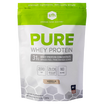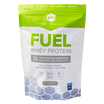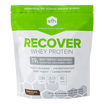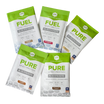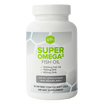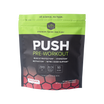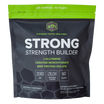Modern Disease and Inflammation

Worried About Chronic Disease? It’s Time To Start Thinking About Inflammation
When it comes to modern-day health concerns, long-term and chronic conditions are at the very top of the list.
The CDC estimates that 6 in 10 adults in the United States suffer from at least one chronic disease, and 4 in 10 are dealing with multiple chronic conditions at once. These chronic diseases are also the leading cause of death and disability in the nation, not to mention the top contributor to our nation’s enormous healthcare costs. In short: chronic diseases are a huge deal.
So what do all of the most common chronic diseases (including but not limited to heart disease, diabetes, cancer, autoimmune diseases, etc.) have in common?
One word: inflammation.
Let’s talk about inflammation and, more importantly, how to reduce it to protect your health.
What’s inflammation, anyway?
To understand the nuanced issues at play, let’s first talk about how inflammation can be good.
Imagine that you get a cut. When this happens, your immune system springs into action and launches its first line of defense to keep you healthy — inflammation. Blood rushes to the site of the injury, and white blood cells release a flurry of chemicals that attack any potential foreign bacteria that might enter your system and get you sick. As it heals, the site of the cut might feel red and tender. This inflamed reaction is a good thing since it means that your body is doing everything it can to keep you healthy!
Now, here’s where it goes awry. If your body is under a condition that it feels like it’s always under attack, it can lead to chronic inflammation. Even in the absence of an obvious injury or threat from bacteria or viruses, your immune system can launch an ongoing inflammatory reaction. But in this case, since it isn’t attacking something that is obviously bad, it attacks your own cells and tissues.
In short: acute inflammation is a good thing since it’s keeping you healthy. Chronic inflammation, however, is a different story. This constant attack on your own body is linked to some of our most common and troubling health conditions including:
- Obesity
- Diabetes
- Heart disease
- Cancer
- Allergies
- Autoimmune disorders
- Arthritis
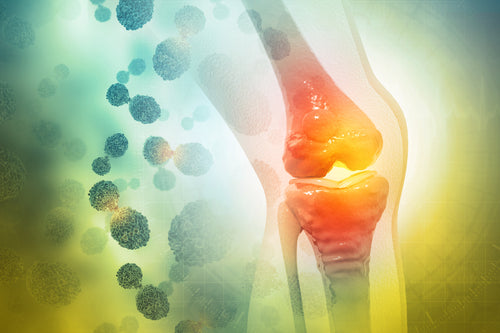
How your diet helps (or hurts)
So how does your body get into that state of chronic inflammation in the first place? There are plenty of factors, but one of the most important (and most controllable) is your diet.
The modern Western diet is often loaded with ultra-processed, fried, and/or sugary foods that promote inflammation. Meanwhile, we also tend to eat fewer nutrient-dense foods like fruits, vegetables, nuts, seeds, and omega-3 fatty acids — all of which are important for reducing inflammation. These eating patterns, combined with other bad habits like overconsumption, high stress levels, and poor physical activity, can all contribute to low-grade inflammation.
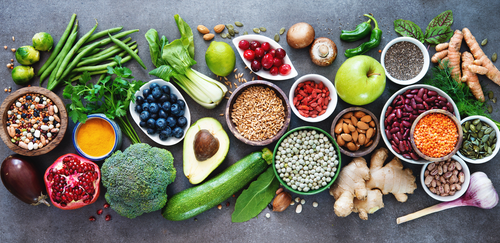
How to reduce inflammation through food
- Increase your omega-3 intake. Omega-3 fatty acids are some of the most valuable tools we have against inflammation. These healthy fats are well-known for their anti-inflammatory properties. Studies have even shown that omega-3s show plenty of promise in helping against a variety of serious chronic conditions linked to inflammation like diabetes, rheumatoid arthritis, chronic kidney disease, and heart health. Fatty fish are an excellent source of omega-3s with anti-inflammatory properties, as are fish oils like SFH Super Omega3 Fish Oil + Vitamin D3.
- Load up on plant-based foods. Nuts, seeds, veggies, and fruits are all excellent anti-inflammatory foods because they contain plant-based nutrients called phytonutrients. Many of these phytonutrients are antioxidants, which can help fight off inflammation. A recent study even found that participants who ate an increased fruit and vegetable consumption saw significant decreases in inflammation and oxidative damage! For the best anti-inflammatory protection, eat as many different plant-based foods as you can to load up on a wide array of helpful nutrients.
- Spice it up. Adding anti-inflammatory spices is another easy way to fight inflammation. For example, the spice turmeric is a great source of the compound curcumin, which research has found to have a variety of powerful anti-inflammatory effects on the human body.
- Avoid foods that promote inflammation. Ultra-processed foods, meats high in saturated fat, and refined sugars are some of the biggest dietary culprits for inflammation. Instead of overindulging in these pro-inflammatory foods, reduce your intake as much as you can and focus the bulk of your diet on nutrient-dense whole foods and lean proteins.
The bottom line:
Chronic inflammation is the common thread among some of our most prevalent and serious health conditions. Luckily, we can fight back with simple diet changes. Focus on increasing your intake of Omega-3s and plant-based foods while limiting your consumption of ultra-processed foods to give your body the tools it needs to fight back.


